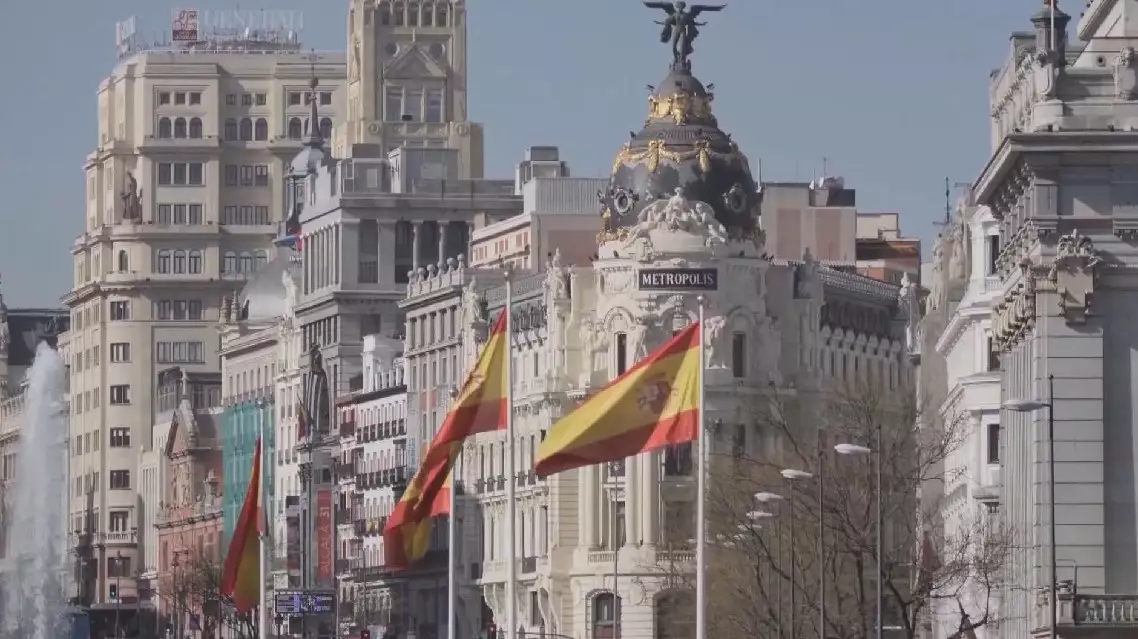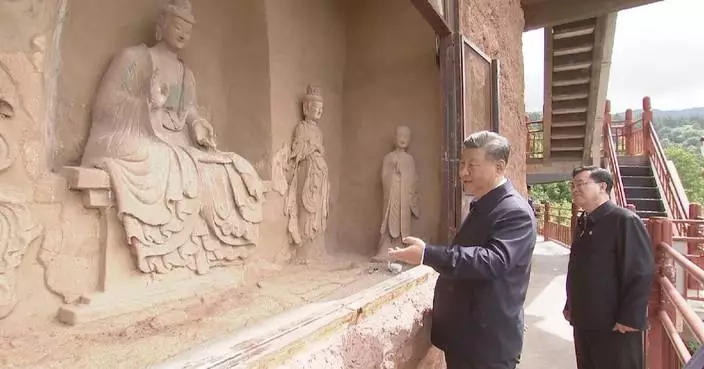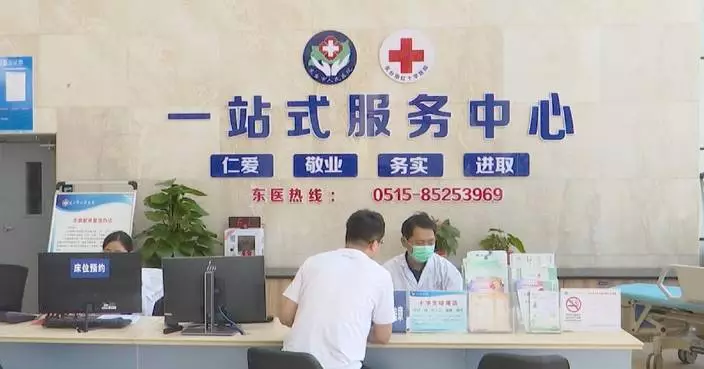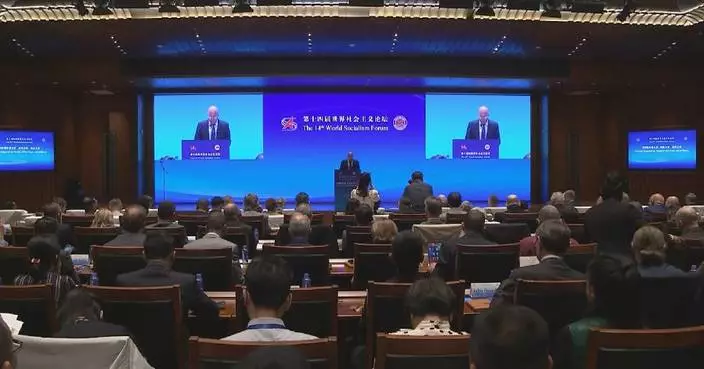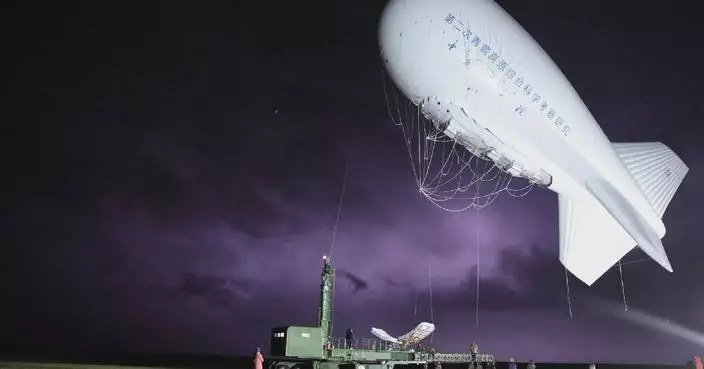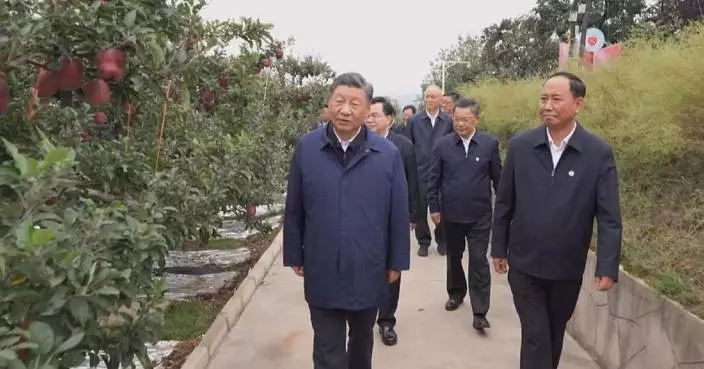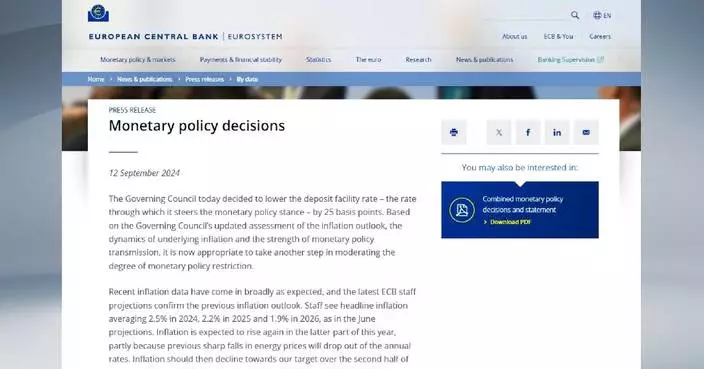The Federal Reserve's consecutive lifting of interest rates is likely to cause the U.S. economy to fall into a recession, instead of cooling down inflation, said Radhika Desai, a professor of political studies at the University of Manitoba in Canada.
After 11 rate hikes by the Fed from March 2022 to July 2023, the target range for the U.S. federal funds rate has risen to between 5.25 percent and 5.5 percent, and was kept unchanged at this two-decade high.
Desai, also a visiting professor of the London School of Economics and Political Science, said in an interview with China Global Television Network (CGTN) that raising interest rates is not a real cure for inflation as it will essentially dampen demand.
"The Federal Reserve has only one instrument at its hand, which is essentially interest rate and monetary policy. And as they say, if all you own is a hammer, then every problem looks like a nail. So, what they try to do is they are using the only instrument they have against inflation. But of course, the real cure for inflation is not to increase interest rates, which simply creates a recession sufficiently strong that it will essentially dampen demand at some point, which is kind of what it may get at some point in the near future. I think that's very likely," said Desai.
Desai said rate hikes pose a threat to the financial sector and assets markets by impeding trading activities.
"But the real reason that the Federal Reserve, the real consideration that the Federal Reserve takes into account when raising or lowering interest rates, are what it's doing to the financial sector. So essentially, there are lots of people today calling for an easing of interest rates. Why? Because the increase in interest rate is threatening asset markets, because the asset markets rely on leverage trading. People borrow lots of money cheaply, and then use it to make money in the asset market, sending up the prices of assets. And then, of course, they return the money with the low rate of interest, leaving them with a big pie. This kind of trading and these kind of asset markets are threatened when the Federal Reserve must raise interest rates to fight inflation," she said.
She stressed that the U.S. economy is on the verge of a recession similar to the 2008 crisis, as the interest rate has reached the 5.25-percent mark.
"The other thing you have to remember is that the last time the Federal Reserve was forced to raise interest rates, which was back in the mid-2000s, it did the same thing. It slowly increased interest rates notch by notch. But by the time they got to about 5.25 percent, it pricked the housing and credit bubbles in 2008. We are already at that level now. We already have seen the rumblings of a crisis. Of course, the financial sector is a little bit more regulated, a little bit more resilient, but not that much. I think the recession is essentially imminent. It's quite possible that it might even happen. You know, the U.S. might be in a recession before the next U.S. elections, which would be quite an important development. So basically, it's not looking very good," Desai said.
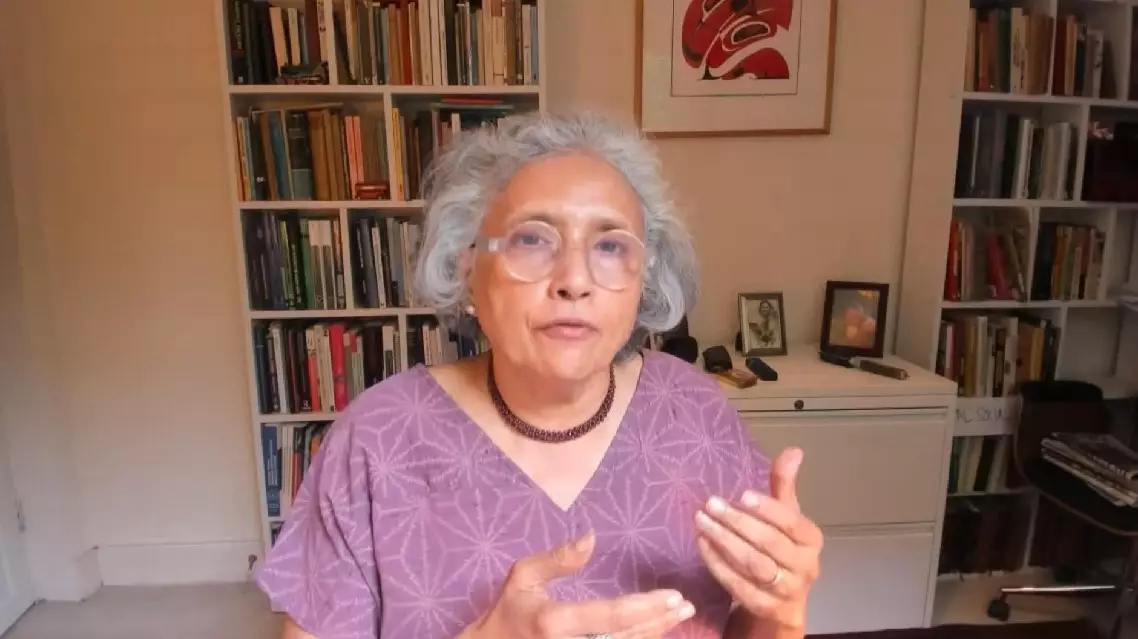
Fed's lifting of interest rates likely to cause U.S. recession: expert


